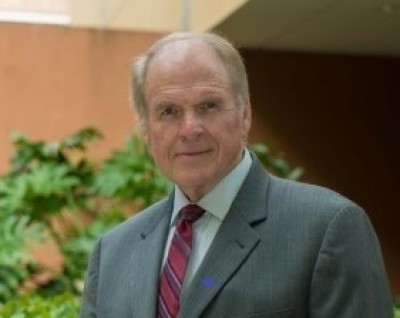A new day for the Church: Profile of a truly dynamic church (pt 3)
One of the greatest tragedies that can afflict the post-pandemic church is that of getting tangled in a jungle of institutional analysis and missing an opportune moment—a kairos.

Pandemic panic can easily lead to shallow solutions and missed opportunities. It can force leaders to give all their energies merely to restoration of activity. Recovery of function becomes the most important goal of all.
Function must arise from being, and therefore institutions in crisis must re-examine and re-connect with the ontological (their essential being) or they will miss the kairological.
If churches are to benefit from theopportunities now before them, it will help to focus on two other Greek words. Bios and zoe are both translated in the New Testament as “life.” However, each has rich meanings and implications that are missed by not providing a more literal translation of each.
Bios refers to “life” that enables existence in a material world and finite time. God formed Adam of the “dust of the ground,” providing the human biological structure that could function in a material world.
Zoe often refers to life as God has it. Therefore, God “breathes” His life into Adam. Greek scholar Milton S. Terry, in his book, Biblical Hermeneutics (Grand Rapids: Zondervan, 1964) carefully delineated the difference between bios and zoe. In the Greek New Testament, Zoe is holy, victorious, and, and eternal — “the antithesis of death,” in Terry’s interpretation.
Bios expresses the existential life as corrupt, failing, and temporal. “In all its uses, bios has reference solely to the life of man as lived in this world.”
Two other words are important in relation to seizing the moment of the present kairos: “form,” and “frenzy”. These have to do with spiritual energy. There are two extremes of church. To borrow imagery from Ezekiel’s “valley of the dry bones,” the “form church” disregards the “wind,” and sees the process of renewal as the restructuring of the “bones”. The “frenzy church” disdains structure, not realizing that without structure the energy of the wind is dissipated.
The “bionic” church (whether form or frenzy), like the “bionic man” of a long-ago American TV series, thus has the appearance of life and structure, but is a human-contrived caricature of real life, incapable of producing the fruit of the Kingdom.
Without Spirit-given energy, the “form” church is a dead institution. Without biblically ordered structure, the “frenzy” church squanders the energy.
Both the church that boasts as being “spirit-filled” and that church that is proud of its well-ordered structure might fall into the “Sardis” category of churches described in Revelation 3:1, where the Lord says, “I know your deeds, that you have a name that you are alive, but you are dead.”
Hence, Chuck Colson’s concern I noted in Part II: we have many churches in America, but little transformation.
What kind of church do we need? What should be aim of renewal and restoration in this kairological moment?
If function arises from being, what is the nature of the “being” of the authentic church? What are the attributes of renewal that can enable a church to reimagine and the renewal that can and should come in this crucial time?
After studying biblical ecclesiology, and working with churches in the United States and other nations for a half-century, this is the “ontological profile” I have observed in the truly dynamic, well-balanced, impactful churches:
- The effective churches are Jesus-centered. As I wrote in Part II, they follow the pattern of Jesus, not as a functional growth-plan, but because that’s how they perceive their own ontological identity. Therefore, as noted in Part II, such churches worship, intercede, proclaim the Gospel of the Kingdom, make disciples for Christ, and serve human need in Jesus’s name.
- The effective churches are Spirit-energized. They have learned the emptiness of manipulation and fake spirituality and recognize that only the Holy Spirit can bring in the fruit of the harvest. They are therefore open to learning whatever they can about the work of the Spirit, within the boundaries of sound scriptural doctrine.
- The effective churches are Word-anchored. They don’t quickly embrace teachings and new ideas without first analyzing them in the context of biblical revelation. They are not “carried off by every wind of doctrine,” no matter how potent or seemingly productive.
- The effective churches are Kingdom-envisioning. They understand the reach of the Kingdom of God into every sphere of life. They do not have a solipsist view that makes them think they are the only real church in town, and don’t need accountability and fellowship with other parts of the body of Christ. Thus, they work together with other churches and organizations to multiply effectiveness.
As I said in Part I, I believe the real church is the most important organism in the world because it impacts the world with the life and ministry of the most transformative Person ever to live—the Lord Jesus Christ.
That’s why we need to raise up in this kairos, the “new day” church—the “Jesus Church” by whatever name. The “new day” and its opportunities are found in the “old day” of the incarnational ministry of Jesus Christ and the New Testament church.
May churches everywhere recover in this “new day” the ancient ontological identity that produced world-changing function.
Wallace B. Henley’s fifty-year career has spanned newspaper journalism, government in both White House and Congress, the church, and academia. He is author or co-author of more than 20 books. He is a teaching pastor at Grace Church, the Woodlands, Texas.
For media inquiries, contact: ChristianPost@pinkston.co




























